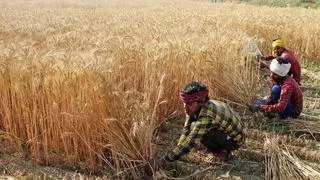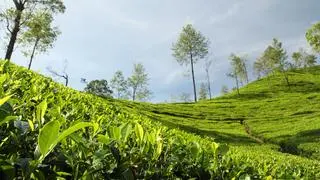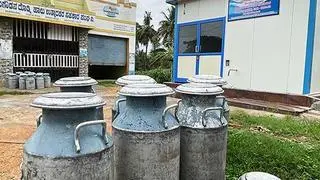North India tea estates, including Assam and West Bengal, are likely to witness a 15-20 per cent decline in the prized second flush crop due to unfavourable weather conditions this year.
Production of tea is likely to be lower in the peak producing months of June and July this year both in Assam, which has been facing the brunt of heavy rains, and West Bengal, where the crop has been impacted due to lack of adequate rainfall.
The cumulative production of tea in North India estates in June-July 2021 was 304.26 million kg (145.69 mkg in June and 158.57 mkg in July). A 15 per cent decline in production during these two months would mean a loss of close to 45 mkg. This is likely to impact the demand-supply balance and may push up prices, which are already ruling firm.
Tea production during January-May is up by 25 per cent at 225.39 mkg against 179.62 mkg in the same period last year, Tea Board data suggest.
According to Kaushik Das, Vice-President and Sector Head, Corporate Sector Ratings, ICRA, tea prices are ruling around ₹10-15 a kg higher this year compared with last year. The demand is steady and exports, particularly of orthodox teas, is picking up.
“Exports have been picking up steadily and a decline in the crop may bring down the availability of tea in domestic markets and affect the demand-supply balance. We expect prices to sustain,” Das told BusinessLine.
If the weather condition does not improve then it may impact tea production during the remaining months of August, September and October, said Bijoy Gopal Chakraborty, President, CISTA (Confederation of Indian Small Tea Growers’ Association).
Orthodox tea prices up
Prices of orthodox tea in sale 30 this year is up by nearly 45 per cent at ₹348.84 a kg against ₹240.85 in the same period a year ago. CTC prices are up by around 15 per cent in sale 30 at ₹246.39 this year against ₹214.02 a kg last year.
“Production of tea has been impacted both in June and July this year. The quality of crop, particularly that of CTC, has suffered as there is absenteeism in gardens due to rains. So plucking suffers and this, in turn, impacts quality,” Atul Asthana, MD and CEO, Goodricke Group, said.








Comments
Comments have to be in English, and in full sentences. They cannot be abusive or personal. Please abide by our community guidelines for posting your comments.
We have migrated to a new commenting platform. If you are already a registered user of TheHindu Businessline and logged in, you may continue to engage with our articles. If you do not have an account please register and login to post comments. Users can access their older comments by logging into their accounts on Vuukle.